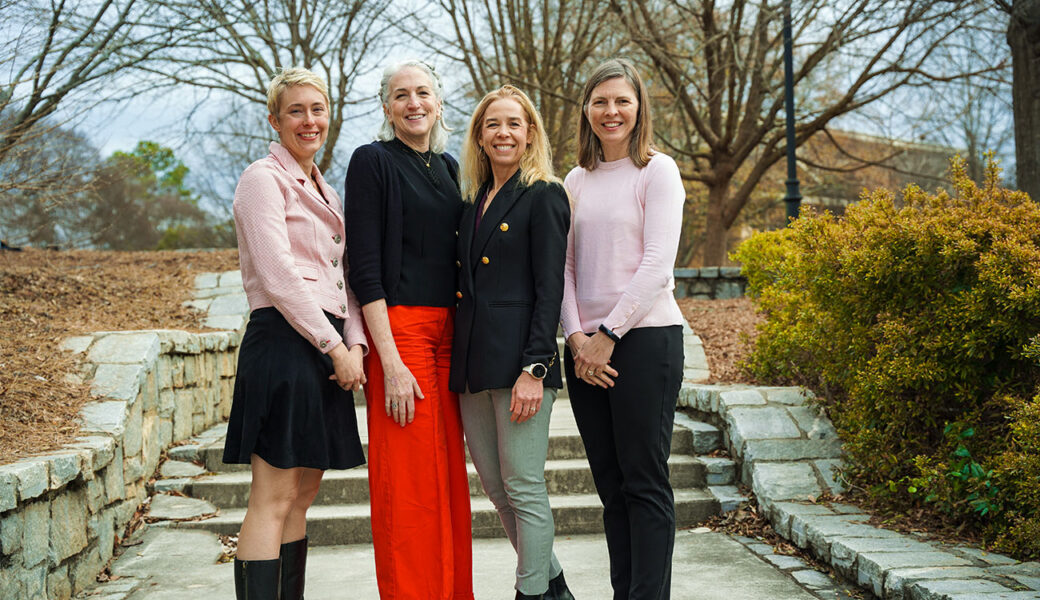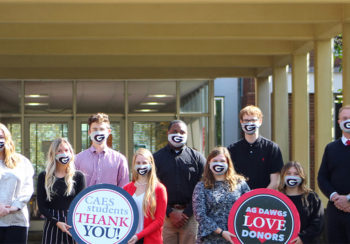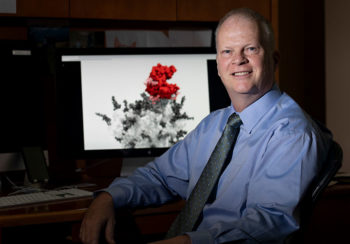A research team from the University of Georgia will join 103 institutions from across the country to form a collaborative learning community that seeks to foster inclusive undergraduate science education.
Funded by a six-year, $493,065 grant from the Howard Hughes Medical Institute’s Inclusive Excellence 3 (IE3) initiative, the UGA team will focus on three areas of effective and inclusive teaching including changes in policy, effective instructor development and optimal sources of evidence.
The HHMI’s IE3 initiative challenges U.S. colleges and universities to substantially and sustainably build capacity for students to have meaningful and positive experience in science through which they will better understand and engage in scientific thinking and discovery, especially students from backgrounds that have been historically excluded from the sciences.
Of the nearly one million students who enter college intending to study STEM, more than half will not complete a degree in a STEM field. Those who leave STEM are disproportionately students who are first in their family to attend college, students who begin at community colleges and students from historically excluded ethnic and racial groups.
The 104 participating institutions have been divided into seven Learning Community Clusters, or LCCs, that comprise approximately 15 schools each. These clusters will focus on the content of the introductory science experience, evaluating effective and inclusive teaching, and building partnerships between the two- and four-year schools.
Leveraging their collective experiences and resources, the UGA LCC4 research team aims to advance policies around inclusive and effective teaching for promotion and tenure, and to improve sources of evidence used to evaluate teaching more robustly and holistically.
“I think that one of the things we know from lots of research on teaching is that it’s not just about instructor knowledge and skills,” said program director Erin Dolan, who serves as Georgia Athletic Association Professor of Innovative Science Education in the Franklin College of Arts & Sciences Department of Biochemistry and Molecular Biology. “It’s also about incentives, rewards and friction in the environment. What incentivizes an instructor to change their teaching if they need to? How do they know they need to change their teaching? What evidence can inform how they teach, including any changes they make? And then what makes it possible for changes to be sustained over time?”
According to Dolan, one of the things that the university’s recent NSF-funded, $2 million Department and Leadership Teams for Action (DeLTA) project did, which this project capitalizes on, is move away from assuming that faculty are going to be effective teachers from the first time they teach, and toward this idea of continuous improvement.
“And that’s really what we want,” Dolan said, “for people to be reflective teachers who base their teaching decisions on evidence.”
This new project is inherently a team effort. The core team is made up of two groups of faculty and administrators: an implementation team and an advisory team. Along with Dolan, the implementation team members include Tessa Andrews, associate professor in the Department of Genetics; Peggy Brickman, Meigs Professor in the Department of Plant Biology; and Paula Lemons, professor in the Department of Biochemistry and Molecular Biology and associate dean of Franklin College. The advisory team will function more strategically and includes: Allan Aycock, director of assessment and accreditation, Office of Academic Planning; Michelle Cook, senior vice provost, Office of Institutional Diversity; Meg Mittelstadt and Ruth Poproski, director and associate director, respectively, of the Center for Teaching and Learning, Naomi Norman, associate vice president for Instruction, and Henry Young, Kroger Professor and head of the College of Pharmacy Department of Clinical and Administrative Pharmacy.
“This project definitely builds on the work that got started with the DeLTA project,” Dolain said. “It nicely complements work that’s happening in CTL with the new QEP and with the 2025 plan for promoting diversity and inclusion, along with the University Strategic Plan. It’s really well aligned with where the university is going, and I think that we are poised to make substantial improvements in supporting faculty in teaching more effectively and inclusively.”






